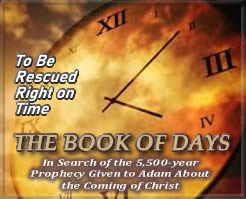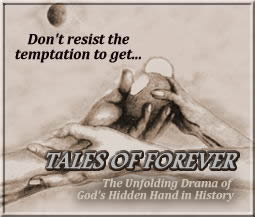Misconception #45 (Cont’d)
When Abraham Sought to Sacrifice Him, Isaac was Still a Child With No Idea What His Father was Planning
Since its first telling, the Binding of Isaac has had humanity scratching its collective head, wondering: What was God thinking in thrusting an innocent child into such a bizarre predicament?
We can only imagine the sheer terror Isaac must have felt as he watched in helpless confusion while his loving father held up that knife, poised to cut his throat.
But wait; before we go too far with our questions and doubts, certainly we’re all acquainted with what the typical evangelical response has been throughout the ages. Immediately, they come to the Lord’s defense, offering up their pat explanations, and all with a perfectly straight face: “Of course,” they insist, “God never intended for Abraham to actually kill his son. This event was just a foreshadowing of what the Lord was planning to do with His Son Jesus. In this case, Isaac was acting as a type of the Son of God, Who would willingly offer Himself up as the Lamb of God, slain as a sacrifice for the sins of the world.”
To which our reply to such profound wisdom is: “Gee, I never thought of it that way. Okay, sure, I see the parallel now.”
There’s only problem: When it comes to seeing the sacrifice of Isaac as a genuine shadow of things to come, an honest look at The Book of Genesis will actually reveal how deficient it is in that department.
Story Continues Below
Says Richard Price—the founder and CEO of Academia.edu—on his podcast In Depth With Academia:
Fish Tales (From the Belly of the Whale): Fifty of the Greatest Misconceptions Ever Blamed on The Bible is:
To hear Price’s book review of Fish Tales (From the Belly of the Whale), CLICK HERE.
To hear Kent and Zen Garcia talk about correcting biblical misconceptions, from October 28, 2021, CLICK BELOW.
Story Continues From Above
Now before anyone condemns me as an unbelieving heretic, let me take this opportunity to review the traditional biblical landscape to prove my point. But do bear in mind, won’t you, that in doing so, it isn’t my intention to undermine the reality of Scripture’s ability to portray these all-important types and shadows. On the contrary, it’s my intention to absolutely prove its ability. But to do that, without needing smoke and mirrors to make these parallels work, there are certain things we need to be aware of.
First, we need to know that for Isaac to be a genuine shadow of things to come he would have had to endure whatever Jesus endured or else the notion of types and shadows becomes meaningless.
Now, it goes without saying that Jesus, as the pre-existent Lamb of God slain before the foundations of the world were laid, cannot be compared in every way to an antecedent such as the mortal Isaac. However, in terms of the human drama they both performed, I do believe they can be compared, as this certainly was the central issue in God’s view.
For example, everyone knows that Jesus was a willing participant in His sacrificial offering at Golgotha. Again and again, He explained that no one could take His life if He hadn’t been willing to offer it of His own accord. So, if Isaac were a genuine type of Christ, he, too, would’ve been a willing participant when Abraham took him to Mount Moriah. But clearly, the Genesis record lacks this critical dimension of the story.
According to it, Isaac is described as a mere lad who’s completely ignorant of the drama in which he’s been ensnared. If that’s the case, then Isaac fulfills the function of a type about as much as a trained monkey led about on a rope. The idea of Isaac as a type of Christ, seen in this light, simply doesn’t add up. And frankly, no amount of propaganda, no matter how many centuries it’s been repeated, will ever convince me otherwise.
But no worries; as we’ve seen in the past, this doesn’t always mean the end of the story. Fortunately, there’s that other source of biblical truth that does so much to set things right; and just as fortunate, this source is available in nearly every modern bookstore. It’s an ancient body of biblical wisdom called pseudepigraphal literature, better known as apocryphal literature. Among the various titles—all of which like The First Book of Enoch were considered God-inspired at some point in history—is a text we’ve previously investigated: The Book of Jasher.
In it is a detailed account of the life of Abraham—so detailed, in fact, that many scholars believe it provided the source material for the later, and obviously condensed, version that Moses produced, with his more familiar Pentateuch. More importantly, with Jasher as our backdrop, we’ll be able to reconcile certain irreconcilable details concerning Isaac—details that help us link events in the lives of both Abraham’s son and God’s Son. Here, then, is how we’ll peel away centuries of disinformation and get to the real truth of the matter.







